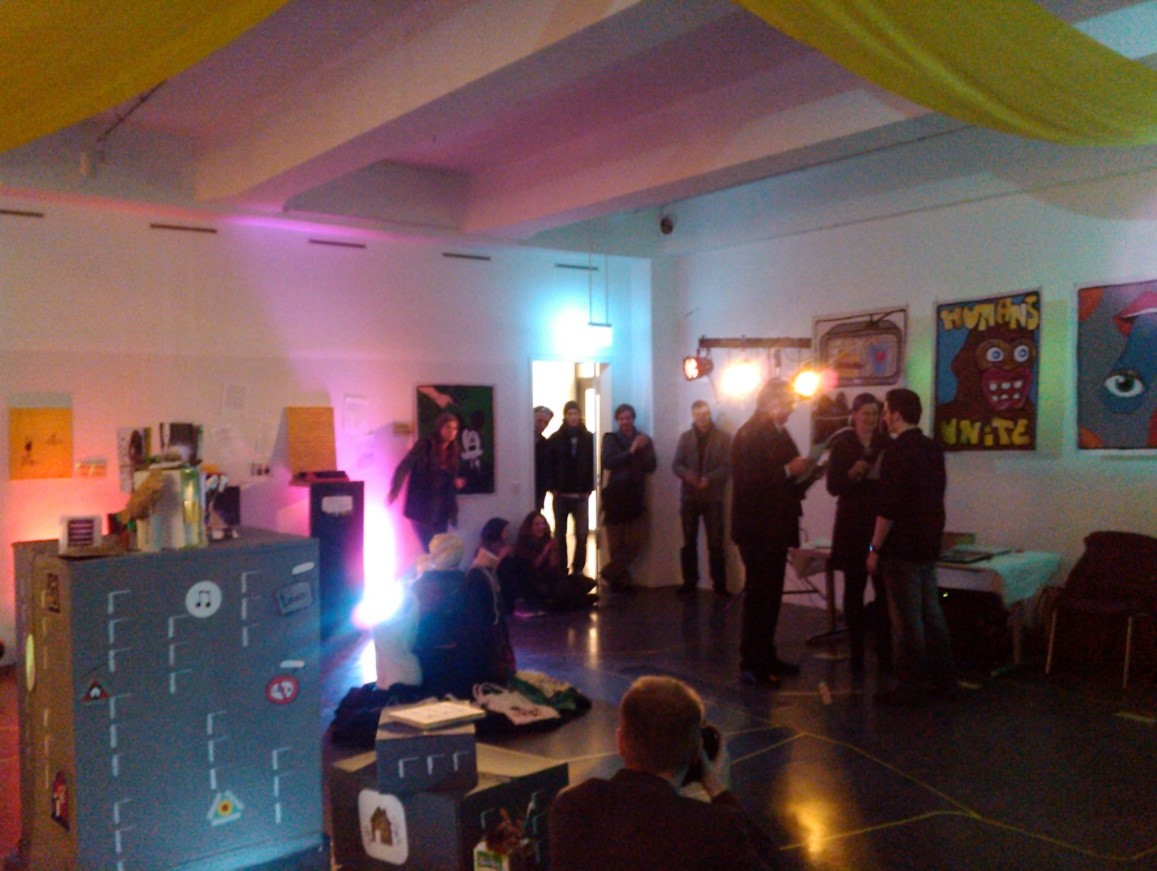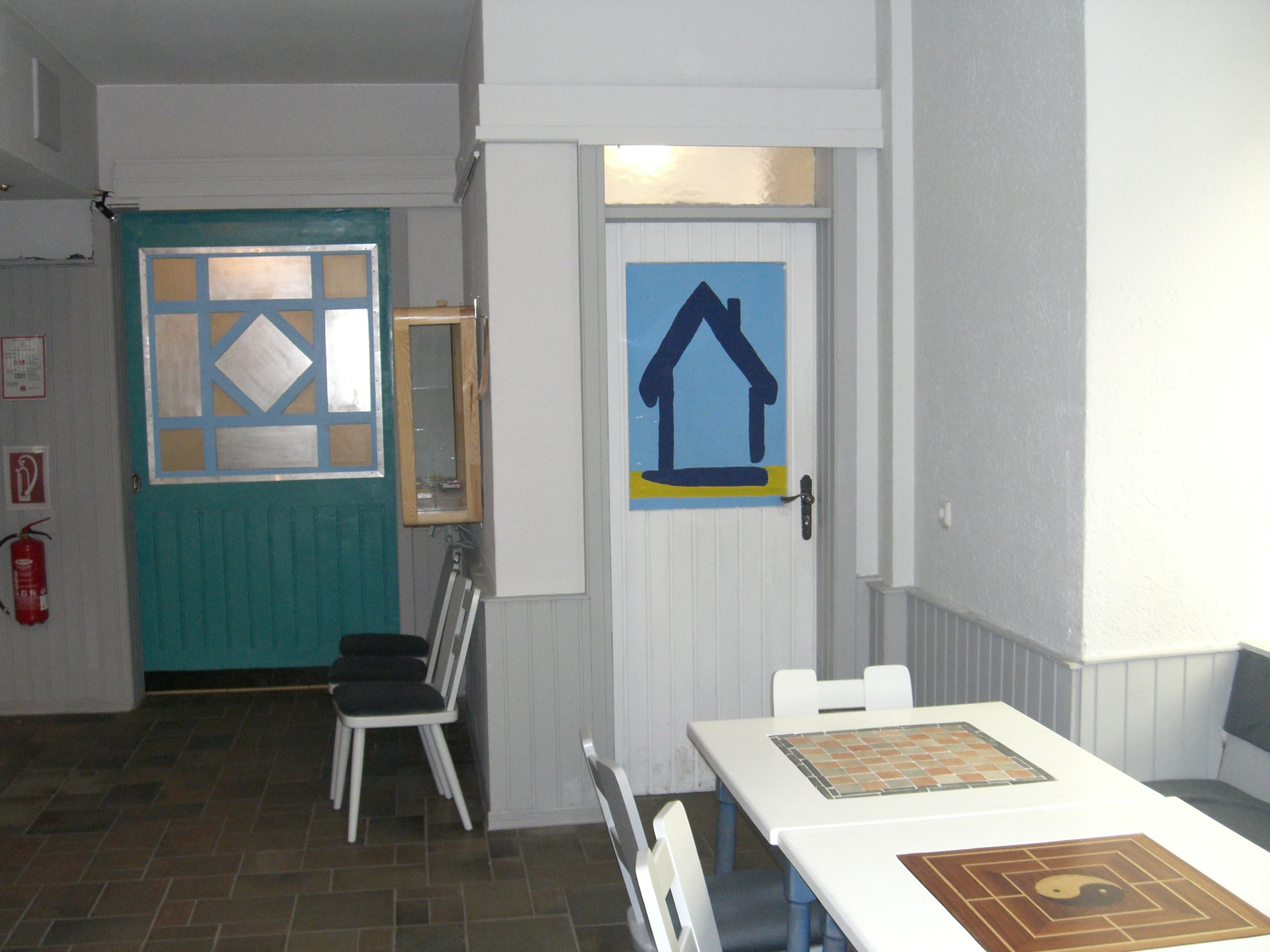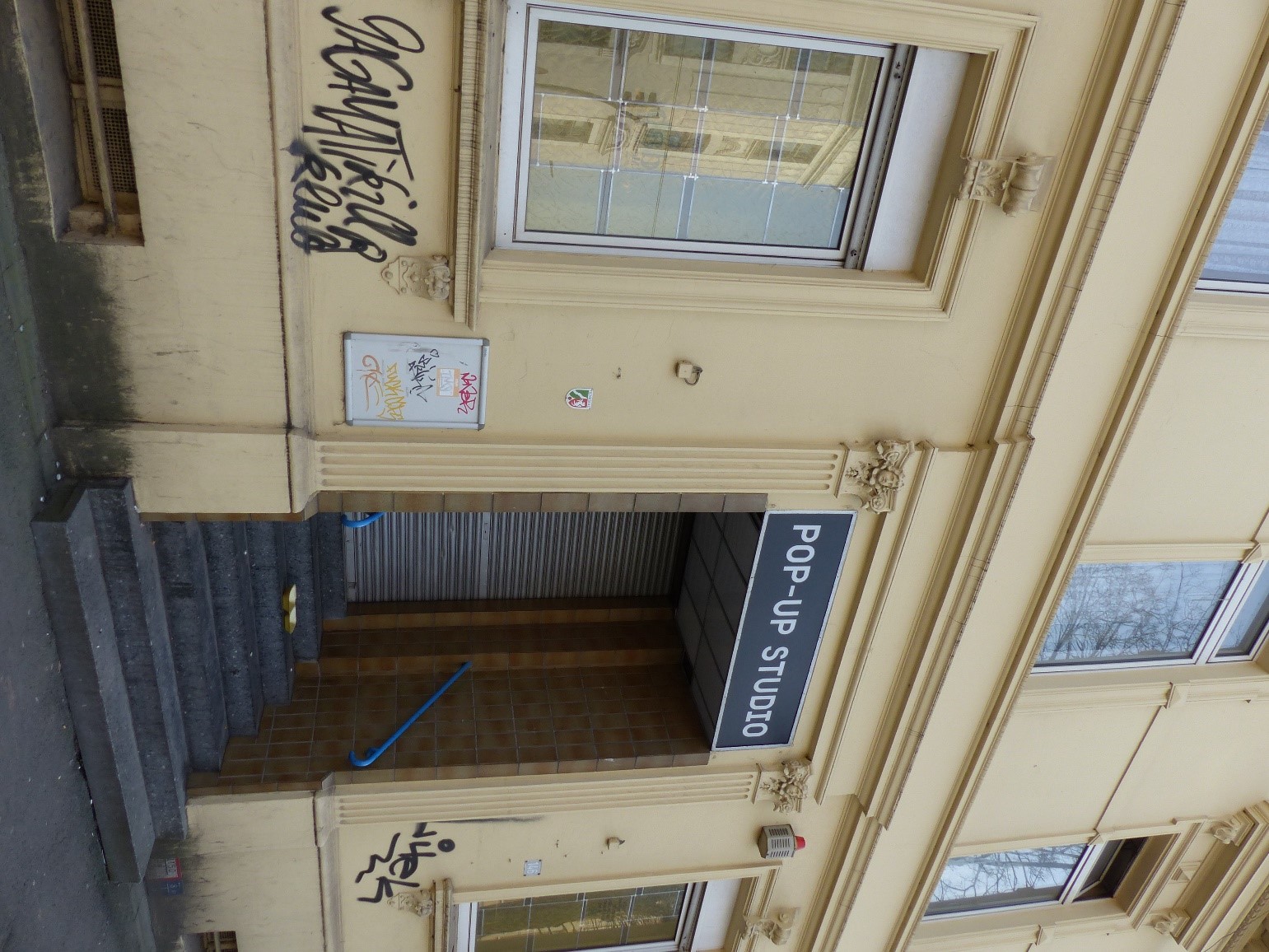WHO
The main initiator, EWEDO, collaborated in close partnership with the Job Centre in the development of the qualification activities and the funding strategy for them.
The funding for both sets of activities, cultural and qualification-building character, came from the temporary use of vacant property measure of the Rheinische Straße redevelopment—namely, when concerned with the actual building and utility expenses, but also in part from the Job Centre for the specific purpose of the qualification-building project.
The project “Youth Checks Vacancies” was part of the Experimental Housing and Urban Development (ExWoSt) programme. It was funded by the Federal Ministry of Transport, Building and Urban Affairs Urban Development (BMVBS) and coordinated by the German Federal Institute for Research on Building, Urban Affairs and Spatial Development (BBSR) within the Federal Office for Building and Regional Planning (BBR). The BBSR is a departmental research institution in the portfolio of the German Federal Ministry of the Interior, Building and Community (BMI). It is responsible for research and specialist advice in the spheres of spatial planning, urban development, housing and building.
The project “Youth Checks Vacancies” was developed in cooperation with the Youth Welfare Office of the City of Dortmund, together with the Department for Child and Youth Development, Union Gewerbehof and Ewedo.
WHAT
Before being occupied, the property was mostly vacant—only a couple of people still lived in the upper floors of the building. The project ‘Blue House’ developed in various stages. After the redevelopment work to make the district more attractive was initially completed, a series of cultural and qualification measures were carried out by the main initiator EWEDO in cooperation with the Dortmund Job Centre.
There were four notable creative projects that took place during EWEDO’s management. Three of the activities implemented as creative projects resulted in the production of artistic artefacts that were showcased inside the Blue House. The remaining “Project Exterior” concerned itself with the rehabilitation of the House’s backyard by repainting it and installing new outdoor seats. Aside from these four projects, the Blue House also hosted a total of 56 leisure and cultural events, attracting almost 1400 visitors in this period.
A total of 49 long-term unemployed individuals, predominantly male and from 11 different migration backgrounds, participated in the qualification-building. The majority of these participants were between the ages of 35 and 45.
It should be noted that the Blue House was the subject of another project directed at the utilization of meanwhile uses which occurred in parallel with EWEDO’s interventions: The project “Youth Checks Vacancies” (Jugend checkt Leerstand) took place in the framework of the model project “Youth revitalises vacancies,” which is part of the Experimental Housing and Urban Development (ExWoSt) programme. “Youth Checks Vacancies” consisted of equipping young people with the skills and tools they needed to design creative spaces in the Rheinische Straße urban redevelopment area in Dortmund Union Quarter. “Youth Check Vacancies” ended with a 3-day exhibition at Dortmunder U’s UZWEI Cultural Education that started on December 13, 2012, where the products and ideas that were generated throughout the project duration were presented.
HOW
The qualification-building with long-term unemployed individuals consisted of teaching a series of modules in addition to socio-pedagogical support. Along with training modules, such as application training, work and social behaviour and IT basics, there were also 12 hours per week of staffed socio-pedagogical support that took the form of individual talks, group talks, and fixed consultation hours.
The activity of “Youth checks vacancies” started by identifying a group of local residents to involve in the process (in this case local youth were chosen). The selected group was provided with a series of workshops. Throughout the workshops the participants defined their own needs and received relevant tools to map the area, identified a relevant space and design a solution that would address their needs by using it. Following that the participants applied their newly acquired knowledge by identifying vacant properties and developing a concept to populate it.
The goal of the project “Youth Checks Vacancies” was achieved by having the participants monitor the redevelopment process and identify vacant properties with good potential. In addition to this monitoring, the project provided a “vacancy check” training that looked at the topic of project management in vacancies and fields of actions such as funding, conflict management, sustainable living, and urban redevelopment. The participants also took part in a 4-week workshop that covered several creative fields.



REFERENCES
Castro, A. and E. Wascher (2021), ‘Dortmunder U and Union Quarter - The Role of Meanwhile Uses in Urban Regeneration: T-Factor Advanced Case Study Report’, Working Paper, Technische Universität Dortmund, at http://dx.doi.org/10.17877/DE290R-22049 View File